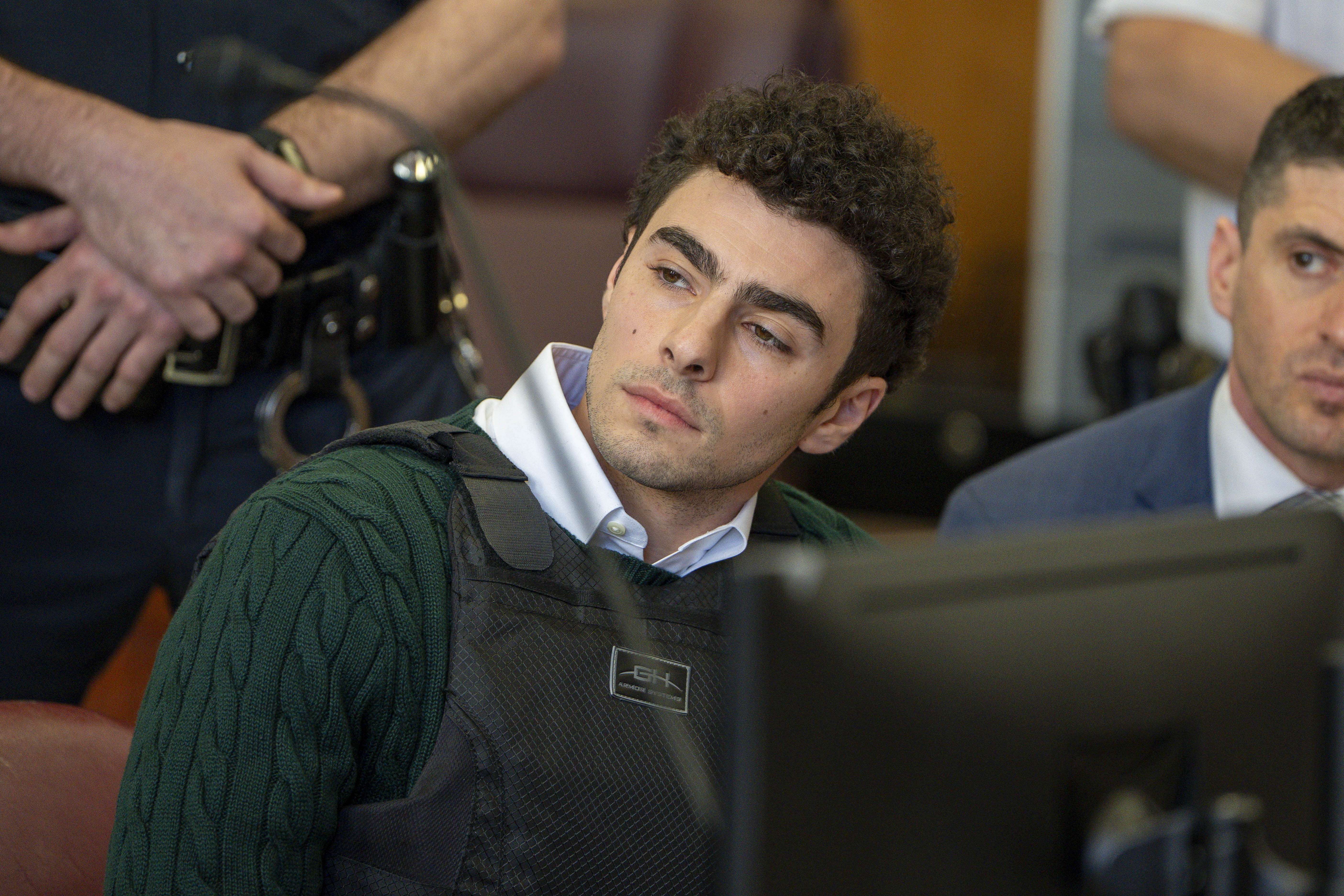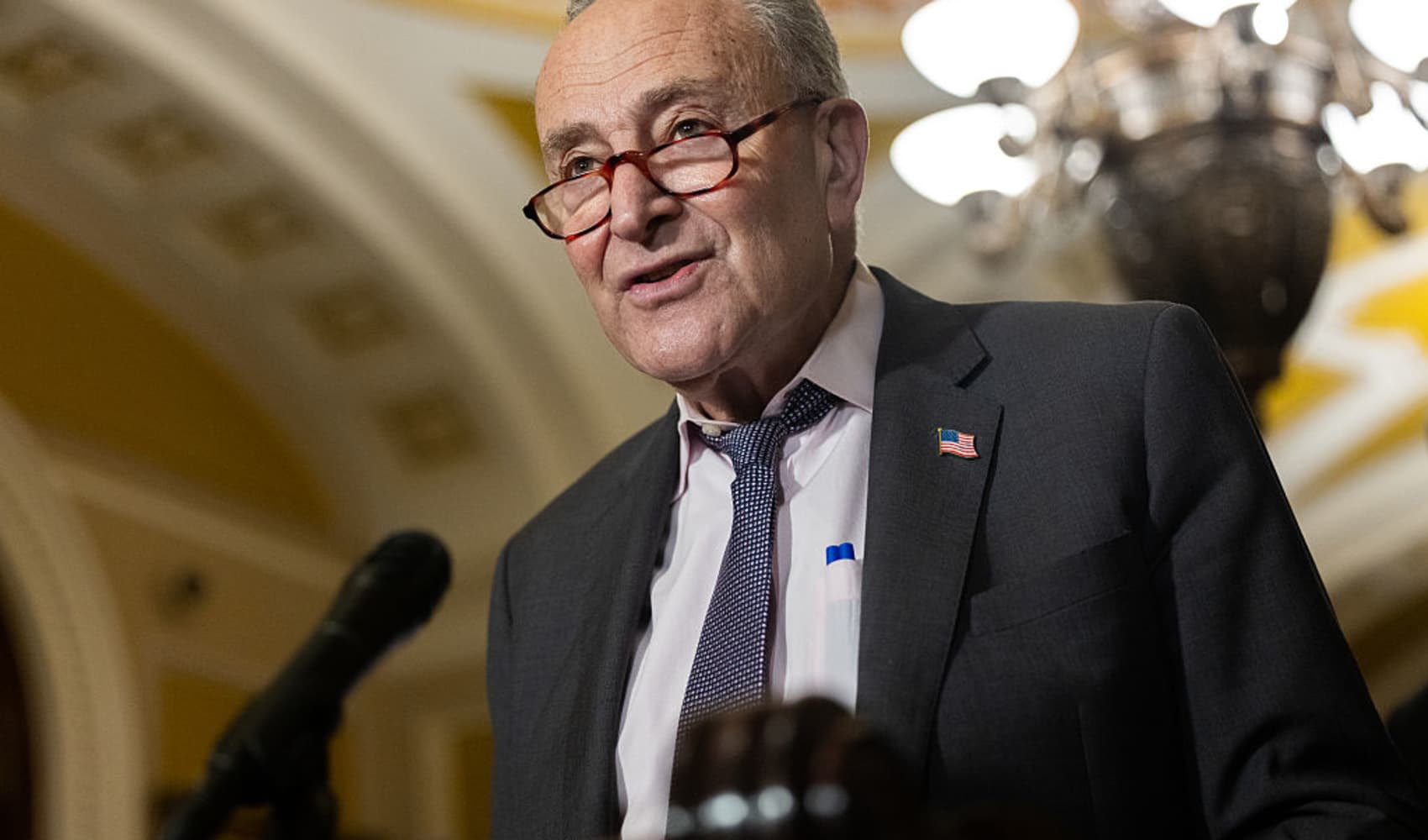Luigi Mangione Pleads Not Guilty: Death Penalty Case Looms
Luigi Mangione Faces Death Penalty: Guilty or Just a Plea?
The Case Unfolds: Luigi Mangione's Not Guilty Plea
The courtroom drama continues as Luigi Mangione, accused in the death of UnitedHealthcare CEO Brian Thompson, has pleaded not guilty to federal charges, including murder and stalking. This isn't Mangione's first rodeo with the legal system regarding this case; he previously entered a not guilty plea to state charges. But what's different now? This time, the stakes are astronomically higher. Prosecutors have officially announced their intention to seek the death penalty, turning this case into a high-profile, potentially life-altering battle.
Federal Charges and the Specter of the Death Penalty
Mangione's arraignment saw him deny the four federal charges levied against him. Beyond the murder and stalking accusations, a firearms offense adds another layer of complexity and danger to the situation. But why the death penalty? What makes this case different from other murder cases? Let's delve deeper.
The Weight of the Indictment
A federal grand jury in Manhattan handed down the indictment against Mangione, mirroring the initial criminal complaint that followed his arrest last December. This indictment is essentially the prosecution saying, "We have the evidence, and we believe you committed these crimes." It's a formal declaration that sets the stage for a potentially lengthy and arduous legal process.
A "Political Stunt" or a Just Pursuit of Justice?
Mangione’s legal team isn't taking this lying down. They're already firing back, arguing that Attorney General Pam Bondi's decision to pursue the death penalty is nothing more than a “political stunt.” Is this a legitimate legal argument, or simply a desperate attempt to sway public opinion and potentially influence the jury pool? Time will tell.
The Timeline: Delays and Anticipation
Don't expect a quick resolution to this case. Mangione isn’t scheduled to return to court until December, where a trial date will be determined. But even then, the trial itself is likely to be some time next year. Why so long? Federal cases, especially those involving the death penalty, are incredibly complex and require meticulous preparation from both sides.
Understanding the Federal Death Penalty
The federal death penalty isn't applied lightly. There are specific criteria that must be met for a case to even be considered for capital punishment. Factors like the heinousness of the crime, the defendant's prior criminal history, and the potential for future danger to society all play a role. This isn't just about proving guilt; it's about convincing a jury that death is the only appropriate punishment.
The Jury's Role
In a death penalty case, the jury's role is monumental. They don't just decide guilt or innocence; they also decide whether the defendant lives or dies. This responsibility weighs heavily on jurors, and the selection process is incredibly rigorous to ensure impartiality and fairness.
The Impact on UnitedHealthcare and the Thompson Family
Beyond the legal drama, it's crucial to remember the human cost of this tragedy. Brian Thompson's death undoubtedly sent shockwaves through UnitedHealthcare, impacting employees and stakeholders alike. And, of course, the Thompson family is grappling with unimaginable grief and loss.
Healing and Moving Forward
While justice is sought, the process of healing for the Thompson family and the UnitedHealthcare community will be ongoing. No legal outcome can fully erase the pain and void left by Brian Thompson's death.
Mangione's Defense Strategy: What to Expect
Expect Mangione's defense team to pull out all the stops. From challenging the evidence to questioning the motives of the prosecution, they will likely explore every possible avenue to avoid a conviction and, ultimately, a death sentence. What specific strategies might they employ?
Challenging the Evidence
One common defense strategy is to challenge the admissibility of evidence. Was the evidence obtained legally? Is there any doubt about its authenticity or reliability? These are the types of questions the defense will likely raise.
Presenting an Alternative Narrative
The defense might also attempt to present an alternative narrative, suggesting that someone else committed the crime or that Mangione's actions were motivated by something other than malice. This could involve introducing new witnesses, presenting expert testimony, or highlighting inconsistencies in the prosecution's case.
The Prosecution's Case: Building a Rock-Solid Argument
The prosecution, on the other hand, will be working to build a rock-solid case that leaves no room for reasonable doubt. They'll present evidence, call witnesses, and argue that Mangione's guilt is clear and undeniable. What key pieces of evidence might they rely on?
Forensic Evidence
Forensic evidence, such as DNA, fingerprints, and ballistics, often plays a crucial role in murder cases. If the prosecution can link Mangione to the crime scene through forensic evidence, it will be a powerful blow to the defense.
Witness Testimony
Eyewitness accounts and testimony from those who knew Mangione and Thompson can also be vital to the prosecution's case. Witnesses can provide context, establish motives, and corroborate other evidence.
The Role of Media and Public Opinion
In a high-profile case like this, the media plays a significant role in shaping public opinion. News reports, social media posts, and commentary can all influence how people perceive the case and the individuals involved. Could media coverage potentially impact the jury pool? It's a real concern for both sides.
The Broader Implications: Justice and the Legal System
This case raises broader questions about justice, the death penalty, and the role of the legal system in society. Is the death penalty a just punishment? Does it deter crime? These are complex and controversial issues that have been debated for centuries.
Conclusion: A Long Road to Justice
Luigi Mangione's "not guilty" plea marks just the beginning of a long and complex legal battle. With the death penalty on the table, the stakes are incredibly high. The coming months will be filled with legal maneuvering, evidence presentation, and intense scrutiny from the media and the public. Whether Mangione is found guilty or innocent, the impact of this case will be felt for years to come. This is more than just a trial; it's a reflection of our society's values and our commitment to justice.
Frequently Asked Questions
- What are the potential consequences if Luigi Mangione is found guilty?
If convicted on the federal charges, Luigi Mangione faces the possibility of life imprisonment or the death penalty. The jury will determine the appropriate sentence if he is found guilty of murder.
- Why is the federal government involved in this case, even though it occurred within a state?
The federal government may become involved if the crime involves crossing state lines, using federal resources, or targeting a federal employee. In this case, the specific reasons for federal involvement haven't been fully detailed in the publicly available information, but likely involve one or more of these factors.
- How does the death penalty process differ in federal court compared to state court?
The federal death penalty process has its own specific guidelines and procedures, which can differ from state laws. For example, the criteria for determining eligibility for the death penalty and the appeals process can vary. Federal cases often involve more extensive investigation and review.
- What is the role of the Attorney General in deciding whether to seek the death penalty?
The Attorney General has the authority to approve or deny the pursuit of the death penalty in federal cases. This decision is based on a careful review of the evidence, the circumstances of the crime, and other relevant factors. It's a significant responsibility that carries considerable weight.
- How long could this trial potentially last, given the complexity of the case and the possibility of a death sentence?
Given the complexity of the case, the number of witnesses, the potential for extensive forensic evidence, and the possibility of the death penalty, the trial could easily last several weeks or even months. Appeals, if any, could extend the legal process for years.

